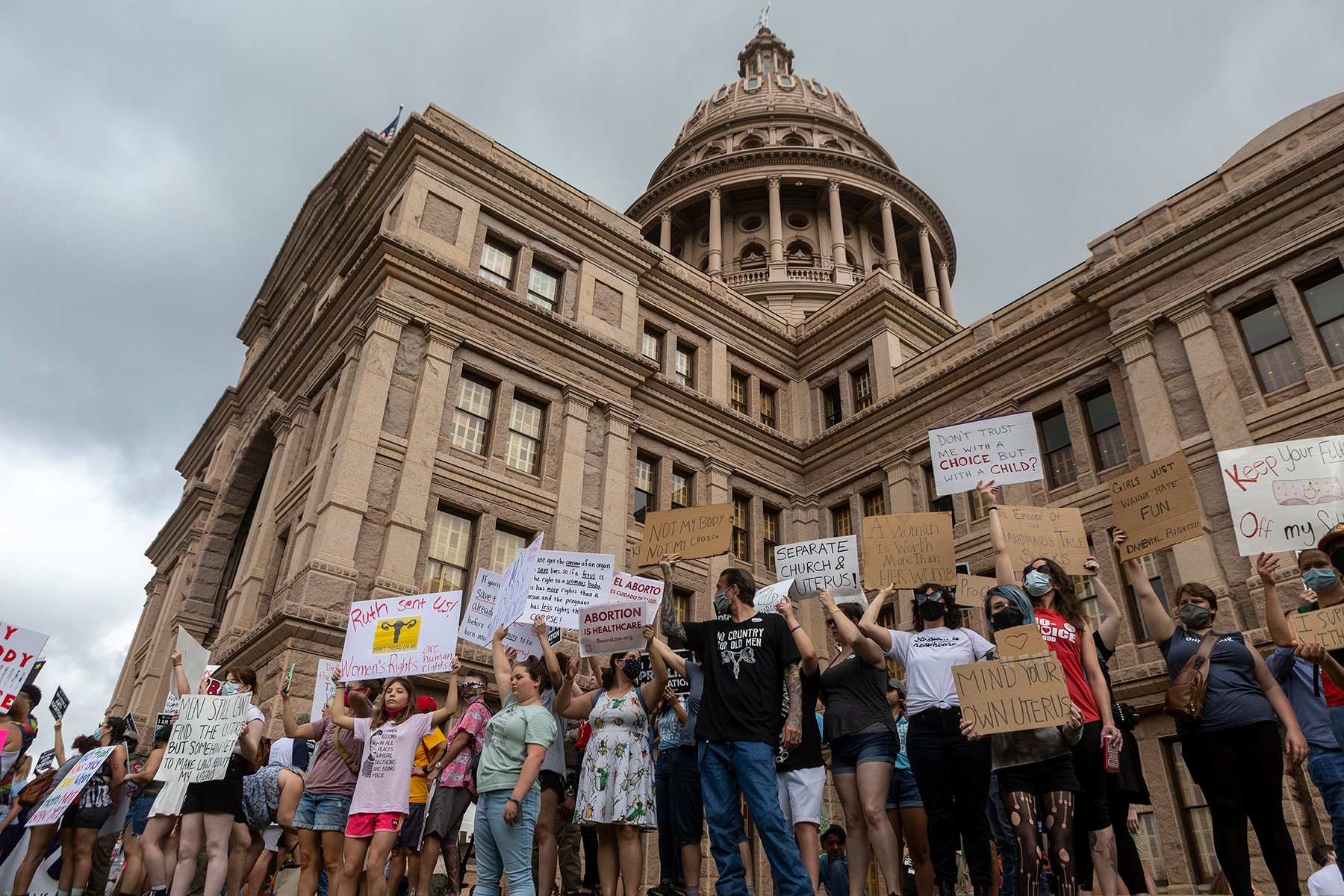Conservative state lawmakers are prepared to press for more abortion restrictions this year, regardless of any action President-elect Donald Trump pursues in office. Many of the bills filed in state legislatures across the country focus on abortion pills, abortion access for minors and, in at least one state, how to undo protections for the procedure.
Legislators in Indiana, Missouri, Oklahoma, South Carolina, Texas and Tennessee have filed bills that would further curb access. In states with near-total bans, lawmakers are looking to eliminate the workarounds residents have used to continue accessing abortions. In others, lawmakers will weigh whether to move from six-week abortion bans to almost completely outlawing the procedure. And in Missouri, where voters just amended the constitution to enshrine abortion rights, some legislators are pushing to reverse or weaken the new democratically established protection.
Because state legislatures often influence each other, more bills are almost certain to follow, as more sessions kick off this week.
It’s still unclear what appetite Trump has for federal abortion regulations. Anti-abortion organizations are still lobbying for the second Trump administration to restrict abortion rights, and several of the president-elect’s nominees for influential government posts have made their opposition to abortion clear. Yet Trump himself has been inconsistent about how he would approach the issue. In his first term, he was a steadfast ally for abortion opponents. But on the 2024 campaign trail, he claimed he would veto any proposed national ban, even while taking credit for the fall of Roe v. Wade.
State lawmakers aren’t waiting for the new president to clarify his approach, and many have taken Trump’s election as validation to pursue new restrictions.
“It emboldened anti-abortion legislators,” said Jennifer Driver, senior director of reproductive rights at the State Innovation Exchange, which advocates for progressive policy in statehouses. “It pushed the limit.”
In Texas, the largest state to ban abortion, the 2024 election eliminated the fear that pushing for new restrictions would result in political blowback, said John Seago, the head of Texas Right to Life, an influential anti-abortion organization. “It took the political excuses off the table,” he said.
Medication abortion
Bills filed so far suggest a focus on further limiting access to medication abortion, the two-drug regimen that can safely be taken from home with virtual medical oversight if needed. Pregnant people in states with bans have relied on medication — in some cases prescribed and mailed by a health care provider in a state with abortion protections — to terminate their pregnancies.
The practice of having pills mailed to states with bans is medically safe but legally fraught. Health care providers typically are only protected when in their home states, and while abortion bans don’t criminalize patients, those who receive medication can risk prosecution under other state laws. Still, it’s created an effective enough workaround that abortion opponents are hunting for a way to end this virtual health care model.
“It’s about the trafficking of abortion pills, whether that’s through the mail, whether that’s physicians bringing them over the border and distributing them — those are really what we’re focusing on,” Seago said. “The fact that these trends have been going on for the past couple of years without accountability is something we seek to change this year.”
Bills targeting abortion pills have been introduced in Texas and Tennessee, where abortion is illegal in almost all cases. They have also been introduced in Indiana, where abortion is illegal after six weeks.
Texas lawmakers have already introduced bills that would ban selling abortion pills online; those who sell or distribute the medications through the internet could be found guilty of a felony. Legislators in Indiana and Tennessee have also targeted distribution of these drugs; an Indiana bill would outlaw possessing abortion medication or sending it to someone else, and a Tennessee bill would ban mailing abortion pills. Another Indiana bill would also reclassify abortion pills as “controlled substances” — a classification that goes against medical evidence but takes a similar approach to a law enacted last year in Louisiana. A separate Texas bill would also classify those medications as controlled substances, which is typically designated for drugs with significant potential for abuse, such as narcotics, and can involve greater penalties for possession.
In Wyoming, where abortion is legal until fetal viability, a Republican-backed bill would require patients to receive an ultrasound before receiving abortion medication — a measure that is out of step with most major medical organizations’ advice, but that would effectively outlaw providing medication through telehealth.
Such restrictions could have sweeping consequences for anyone who becomes pregnant. Mifepristone and misoprostol are also used to treat miscarriages, which typically require the same standard of care as an abortion.
It’s not clear which specific bills will make it to their respective governors’ desks — in Texas, Seago, said, his organization expects more medication-specific legislation to be filed in the state Senate, including the bills they will most actively champion — but they signal a clear interest in medication and its particular role in helping people circumvent abortion bans.
That will also likely mean efforts to target the medical providers who have helped patients receive medication abortions. Many have relied on shield laws, or statutes saying their home state will not comply with another state’s effort to prosecute them for providing abortion-related health care. The laws are still relatively new and have not yet been tested in court.
“We are going to see more attacks on shield laws,” said Elisabeth Smith, the director of state policy and advocacy at the Center for Reproductive Rights, a legal advocacy group that has challenged state abortion laws in court. “We’re going to see more attacks on providers.”
That focus has already begun to take form outside of state capitols. Ken Paxton, Texas’ attorney general, filed a lawsuit in December targeting a New York-based physician who allegedly prescribed and mailed abortion pills to a woman in Texas.
The case is a first test of whether existing state abortion bans can be leveraged to penalize people who live outside of their state lines, or if these bans will be thwarted by shield laws like New York’s. More such lawsuits are likely, Seago said, a view other abortion law scholars and observers echoed. A successful case could halt or substantially undercut the practice of telehealth provision to people in states with abortion bans.
“This is a test case. They’ll see how this goes, and I’m sure there will continue to be more challenges like this,” said Greer Donley, a law professor at the University of Pittsburgh who studies medication abortion law.
New barriers for minors
While medication and its virtual prescription remain abortion opponents’ top priority, legislators are also looking to other avenues that could further weaken access to or awareness of abortion, particularly for young people.
A bill in Mississippi, where abortion is illegal in almost all cases, would prohibit acquiring abortion medication for a minor or transporting the minor out of the state for an abortion without the consent from the patient’s parents or guardians. A bill in New Hampshire, where abortion is legal until 24 weeks of pregnancy, also targets young people by proposing to outlaw transportation of a minor for an abortion without their parents’ or guardians’ consent.
One in South Carolina would outlaw almost all abortions — rather than the six-week ban that currently exists — by removing exceptions for cases of rape and incest, and making it harder for minors specifically to get abortions. The bill would eliminate judicial bypass, which judges can grant to minors whose parents or guardians do not give consent to have an abortion.
Undoing abortion protections
Missouri’s abortion rights measure passed in November with 51.6 percent voting in favor. If lawmakers can successfully weaken it — slow-walking implementation, redefining it to offer less protection, or passing a new constitutional amendment that reverses it — those efforts could offer a model for other anti-abortion states.
Lawmakers are seeking to reverse a decision by voters to enshrine abortion rights until fetal viability in the state constitution — introducing proposals to re-amend the state’s constitution in opposition to abortion rights, one to ban abortion at six weeks and another to criminalize the possession of abortion medication.
Speaker of the House Jonathan Patterson has floated the idea of redefining “fetal viability” to potentially earlier in pregnancy. Medically, a fetus is considered viable when it can live independently outside the uterus, typically around 23 to 25 weeks. But anti-abortion opponents have been trying to argue that the number falls earlier — some suggesting around 15 weeks — even though that has no medical basis. Patterson has not said when the legislature would seek to define viability.
The legality of some of those efforts is questionable, as is whether Missouri’s state court system will allow these efforts to take effect.
Since Roe’s overturn, reproductive rights supporters have relied on direct democracy, asking voters to amend their state constitutions to protect abortion, to undo prohibitions on the procedure. Those efforts have succeeded in states including Arizona, Michigan, Montana, Nevada and Ohio, as well as in more reliably liberal states such as California, Colorado, Maryland, New York and Vermont. In Florida, an abortion rights measure received 57 percent of voter support — a share that would have been enough in other states, but shy of the 60 percent required to amend the state constitution. It was the first abortion rights measure to fail since the fall of Roe.
But many states do not allow for a citizen-initiated ballot measure process. Only four states that allow ballot measures — Arkansas, Idaho, North Dakota and Oklahoma — have not yet had an abortion rights proposal before voters.






